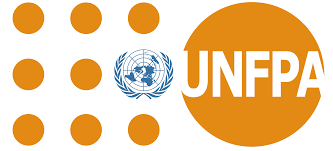

Advancing integrated and cohesive production, dissemination and use of population and housing census data
UNFPA
The commitment reinforces UNFPA’s leadership in population and housing censuses around the world, dating back more than 50 years -and highlights efforts by UNFPA to:
- support effective dissemination and use of data from the 2020 census round;
- advance modernization of census processes in the 2030 census round (including new technologies and sustainable pathways towards register-based censuses); and
- promote integration of censuses within national data systems, including inter-linkages with CRVS systems strengthening, in line with the UN Secretary General’s system-wide data strategy.
By definition, a population and housing census is an enumeration of the total population of a country and provides data on numbers of people, their spatial distribution, age and sex structure, their living conditions and other key socioeconomic characteristics. Such data are critical for good governance, development planning, risk reduction and crisis response, social welfare programmes and business market analyses. In most developing countries, censuses are the primary source of data on the size and spatial distribution of the population and its characteristics, and this is likely to remain the case for the foreseeable future.
The 2020 round of population and housing censuses, which draws to a close in December 2024, has been characterized by a number of exciting innovations (such as the harnessing of new technologies for census taking, georeferencing and increasing transition to register-based census methodologies), as well as notable challenges (such as disruptions due to the COVID-19 pandemic, protracted conflict and shortfalls in domestic and international financing). Despite the multiple challenges, 85% of countries conducted or are expected to conduct a census during the 2020 round, covering approximately 78% of the global population. The increased use of geospatial information systems (GIS) in the 2020 census round, including georeferencing of dwelling units, provides greater opportunity to combine census and other geocoded data sets in spatial analysis, for example to map population access to services. Also, the inclusion of census add-on questions on migration, marriage registration, displacement increases the value-add of censuses for policy development and programming. However, census data are often under-utilized due to limited analytic and dissemination capacity at national level.
This commitment reinforces UNFPA’s leadership in population and housing censuses around the world - dating back more than 50 years -and highlights efforts by UNFPA to support effective dissemination and use of data from the 2020 census round, modernization of census processes in the 2030 census round. The commitment builds on the UN Secretary General’s system-wide data strategy, and recognition of the central role of population and housing censuses within national data systems including linkages with CRVS system strengthening efforts
This commitment will involve UNFPA
- hosting policy, technical and programmatic convenings on the modernization of census methods and strategic and innovative analysis and use of census data across the humanitarian-development continuum;
- supporting the revision, piloting and rollout of updated UNFPA technical guidance materials and tools;
- publishing and disseminating thematic analysis products from the 2020 census round, in support of the 2030 sustainable development agenda and ICPD Program of Action;
- Leveraging the Centre of Excellence for CRVS Systems to promote the interlinkages of census and CRVS systems.
These four commitments are aligned with the 2030 Sustainable Development Agenda, UNFPA corporate strategic plan and work plan of the UNFPA’s Global Census programme and coordinated efforts with the International Committee on Census Coordination (ICCC).
